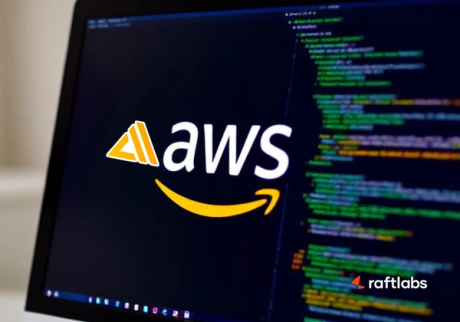
How Much Does A Mobile App Development Cost in 2025?
- Riya Thambiraj
![Riya Thambiraj]()
- Mobile Development
- Last updated on
Have you ever wondered why mobile app development is vital for business growth?
Let's perform a simple task to find the answer to this question.
Go to the application section in your smartphone's settings to know the number of apps you use.
Are you surprised by the number of apps stored on your small electronic gadget?
Now, let us take a look at some interesting figures.
People tend to check their phones at least 58 times a day.
Smartphone users in the US spend a minimum of 3 to 4 hours on their phones daily.
An average person uses 9 mobile apps daily and 30 mobile apps per month.
These numbers clearly show the role mobile apps play in our daily lives.
Why are mobile apps relevant in 2025 and beyond?
Mobile apps help businesses easily communicate and engage with customers. You can view them as a bridge that connects businesses to potential customers.
According to the recent statistics:
2.87 million apps are available on the Google Play Store.
1.96 million apps are available for download and use on the Apple App Store.
As you clearly understand why businesses consider it necessary to develop a mobile application, let us learn about different types of mobile apps.
Mobile App Development Cost by Development Phase
The cost of developing a mobile app depends on several factors, including the app’s complexity, design requirements, chosen technology stack, and ongoing maintenance needs.
To help you understand how your budget is allocated, here’s a detailed breakdown of the estimated costs involved at each phase of the mobile app development process.
| Development Phases | Estimated Cost ($) | Description |
|---|---|---|
| Discovery & Planning | $2,000 – $8,000 | Initial research, requirement gathering, competitor analysis, and roadmap creation. Helps align business goals and technical scope. |
| Prototyping & Design | $5,000 – $20,000+ | Wireframing, UI/UX design, and interactive prototyping to visualize user flow and interface before development begins. |
| App Development | $15,000 – $75,000+ | Actual coding of frontend and backend features. Covers API integration, databases, and core functionality. |
| Quality Assurance | $3,000 – $15,000 | Testing across devices and operating systems for bugs, usability issues, and performance optimization. |
| Deployment | $1,000 – $5,000 | Final app submission to App Store/Play Store, setup of production environments, and launch support. |
| Maintenance | 25% of the total app cost per year | Ongoing support, bug fixes, OS updates, performance improvements, and feature enhancements post-launch. |
So, the total cost to develop a mobile app typically ranges from $20,000 for simple apps to $200,000 for complex and enterprise-grade level apps, considering multiple factors such as app complexity, feature set, and development approach.
Mobile App Development Cost Based on Complexity
The cost of developing a mobile app largely depends on the app's complexity that you're building to solve the problem.
Multiple factors, such as the number of features, third-party integrations, tech stack, and backend infrastructure, all play a significant role in determining the total budget.
Below is a general estimation based on the app's complexity.
| App Type | Estimated Cost | Development Time |
|---|---|---|
| Simple App Development | $30,000 – $60,000 | 1–3 months |
| Medium App Development | $60,000 – $150,000 | 3–6 months |
| Complex App Development | $100,000 and above | 9+ months |
To get a more accurate estimate tailored to your project, it’s better to speak directly with a development team. If you haven’t chosen one yet, you can reach out to us as a starting point.
However, remember that any estimate provided without detailed specifications, such as feature lists, user processes, or technical requirements, will only be an estimate at best. Developers typically require detailed documentation and a well-defined scope to provide a reliable estimate.
To get a more accurate estimate with a team, you’ll need to consider the following things:
Number and complexity of features and functions
Number of app screens and design complexity
App architecture and development approach
Scope of quality assurance and testing
Backend database design and security layers
Depth of third-party API integrations
Compliance needs like HIPAA or GDPR
Size and seniority level of the development team
At RaftLabs, we approach cost estimation through a structured discovery and planning process. This ensures pricing is aligned with your goals, technology choices, and market strategy.
Mobile App Development Cost by App Type
The typical cost of developing a mobile app ranges from $30,000 to $300,000 or more, depending on several factors. The type of app you're creating is one of the primary factors in determining its cost.
Each type has its own technical requirements, feature set, and level of complexity in development. To help you plan more effectively, we've listed some of the most common types of apps and estimated the likely cost of building them.
| App Type | Key Features | Estimated Time | Estimated Cost |
|---|---|---|---|
| Basic App (MVP) | User login, profile, simple dashboard, limited database interaction. | 3–4 months | $20,000 – $60,000 |
| iPhone App (iOS) | Native UI/UX, iCloud integration, App Store submission. | 3–6 months | $30,000 – $100,000 |
| Android App | Google Play integration, native Android UI patterns, and broad device compatibility. | 3–6 months | $25,000 – $90,000 |
| Web App | Responsive UI, APIs, user accounts, dashboard, and admin panel. | 2–4 months | $25,000 – $80,000 |
| E-commerce App | Shopping cart, product filters, payment gateways, and order tracking. | 4–6 months | $40,000 – $150,000+ |
| Social Media App | Feed, likes/comments, push notifications, messaging, media uploads. | 6–9 months | $80,000 – $200,000+ |
| AI-Powered App | Chatbots, personalization, predictive analytics, OCR/NLP integrations. | 6–10+ months | $100,000 – $300,000+ |
| SaaS / Enterprise App | Role-based access, analytics, integrations with CRMs/ERPs, and secure infrastructure. | 6–10 months | $90,000 – $250,000+ |
| Taxi App (Uber-like) | Live tracking, route calculation, payment gateway, ratings, push notifications. | 5–7 months | $60,000 – $150,000 |
| Game App | In-app purchases, animations, AR/VR support, multiplayer, leaderboards. | 6–12+ months | $40,000 – $250,000+ |
| Retail App | Product listings, shopping cart, payment gateway, order tracking, and user profiles. | 4–6 months | $40,000 – $120,000 |
| Video Streaming App | Media player, subscription plans, DRM, content library, and offline mode. | 5–8 months | $50,000 – $250,000+ |
| Restaurant App | Menu listings, online orders, reservations, in-app payments, and reviews. | 3–5 months | $40,000 – $100,000 |
| Community App | Profiles, feed, group chat, push notifications, and moderation tools. | 4–6 months | $50,000 – $120,000 |
| Food Delivery App | User + delivery + admin roles, live map tracking, payment integration, and status updates. | 5–7 months | $50,000 – $120,000 |
| Hybrid App | Built using Flutter or React Native, fast development with shared logic. | 3–6 months | $30,000 – $90,000 |
| Healthcare App (HIPAA) | Secure data storage, EHR integration, video consults, HIPAA/GDPR compliance. | 5–9 months | $50,000 – $250,000+ |
The cost of development can vary significantly depending on whether you're creating a minimum viable product (MVP) or a full-featured app.
Please note that these numbers are approximate estimates. The actual cost may vary depending on the complexity of your project and the development partner you work with.
Factors That Impact Your Mobile App Development Cost
Platform
What kind of mobile app are you planning to develop?
a platform-specific app (native apps)
an app that can run on multiple platforms (hybrid apps)
Native apps need more time for development. So, native apps are more expensive.
App Complexity
The logic is quite simple.
The more complex the features of your mobile app, the higher the cost of app development.
Audio/ video streaming services
Payment processors
Social media integrations
Multi-language support, etc.,
Planning to integrate such technologies will increase the overall cost of app development.
Features & Functionalities
Not all apps are built equal. Some are easy to build, but others need a lot of work, such as building a strong infrastructure, making deeper integrations, and doing a lot of testing.
It's important to understand difference between basic and advanced features because they affect the time and cost of development in different ways.
Basic Features
These are basic components that most apps have. They are not too hard to put into place and are usually the main part of the user experience.
User login (using an email address and password, Google, or Apple)
Users profiles that can be changed with preferences
Push notifications (via Firebase or Apple services)
Basic navigation and user interface
Static content (Content that doesn't change like About Us and FAQ)
Contact or feedback forms
Basic analytics integration (e.g., Google Analytics, Mixpanel)
Estimated cost per feature: $1,000 – $6,000 Cost varies depending on the level of customisation and platform.
Advanced Features
These features make things more complicated and need more work to be done on the frontend, backend, and testing environments.
Third-party API integrations (e.g., Stripe, Twilio, Maps)
AI/ML capabilities (e.g., recommendation engines, chatbots)
E-commerce infrastructure (shopping cart, checkout, payments)
Geolocation in real time with routing or geofencing
Getting to the hardware on the device (camera, gyroscope, NFC)
IoT or Bluetooth (BLE) integrations for connected devices
Compliance features for accessibility (WCAG, ADA standards)
Advanced features can significantly increase the overall development cost and timeline depending on their depth, technical requirements, and scalability.
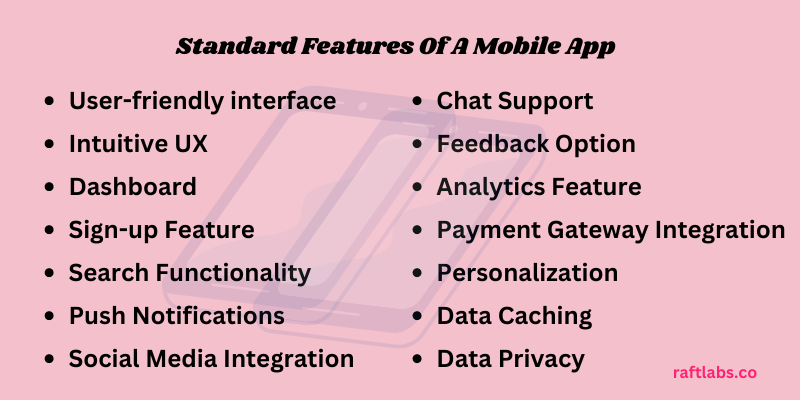
Here is a golden tip to get a grip on the mobile app development expense:
Develop an MVP in the initial stage with core features.
Collect user feedback.
It will help you analyze the response your product will get in the market. So you can be sure whether to spend more to scale the mobile app and incorporate more features.
App Category
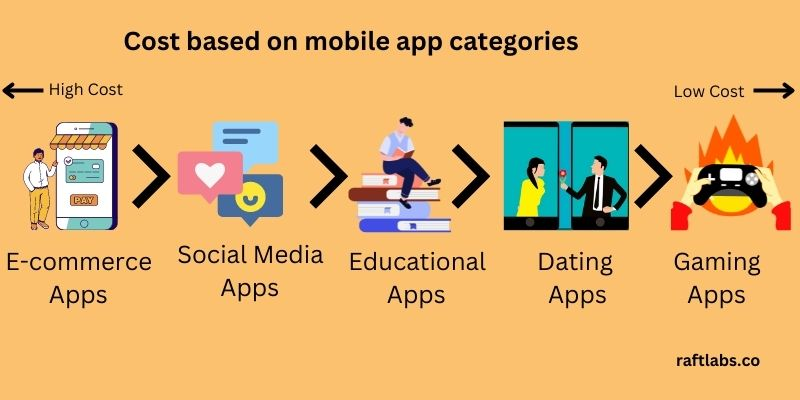
Cost based on mobile app categories
If you plan to develop an e-commerce mobile app it may need additional features like payment platform integration, voice search, etc.
So, the app development cost for specific app categories can be high as they demand more advanced features.
App Design
Are you planning to create:
Customized UI
Standard UI
Developing an app with a custom UI is more challenging and can cost you more.
Backend Requirements
There are different types of mobile apps based on the business use cases. For example, the gaming app wouldn’t need any backend services. However, any eCommerce, educational, or travel apps will need a backend.
You might wonder what a backend is. Think of it as services that connect the mobile app and enable data flow. For example, the inventory or real-time food delivery status or car availability status, etc. All this needs highly complex and capable backend services.
The type of backend services required for these use cases also drives up the cost factor.
Hidden Factors Affecting Mobile App Development Cost
You often overlook some factors which can attract more app development costs.
Developer Location & Hiring Costs
If you plan to create an app with your in-house team, apart from the app development cost, you will have to bear additional factors that will increase your expenses:
The salaries of your employees
Setting up the infrastructure
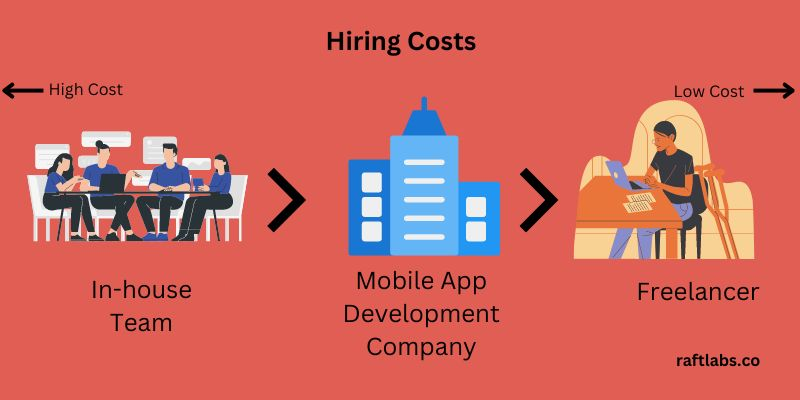
Hiring a freelancer can be the cheapest option. But it may be risky. A person can only be proficient in some areas. So, you will have to hire multiple people to complete the app development.
Finding a mobile app development company like RaftLabs can be the safest option. They will possess
Extensive knowledge
Hands-on experience
It can help you achieve optimal results in less time.
However, the app development cost may vary depending on the location of the mobile app development company.
Mobile App Development Hourly Rates by Region
Here’s a brief comparison of the developers rates in different regions:
| Region | Hourly Rate (USD) |
|---|---|
| United States (USA) | $120 – $150 |
| United Kingdom (UK) | $100 – $120 |
| Australia | $100 – $120 |
| Western Europe | $80 – $100 |
| Eastern Europe | $40 – $50 |
| India | $20 – $30 |
| Indonesia | $25 - $85 |
Releasing The App
You will have to make a payment to release the mobile app in an app store.
> Google Play Store charges a one-time registration fee.
> Apple App Store charges an annual fee of USD 99.
Apart from this, you will have to submit the following data to get approval for the app:
Privacy Policy
Copyright
You will have to bear the legal service charges to create these documents.
App Maintenance
Do you think your work is over once you create an app?
The answer is a clear NO.
Fixing the bugs
Code optimization
Rolling out regular updates
Timely maintenance
Providing technical support
The above activities ensure that your app remains up-to-date and bug-free.
Administrative Costs
You will have to spend some amount on administrative services.
To give you a better idea, let us give you a few examples of paid administrative services:
Content management tools
Access control system
App analytics tools, etc.
You will also have to face expenses for Infrastructure Costs like
Hosting your app
Cloud storage
CDN services
Marketing Expenses
Once you release your app, you must let your target audience know the news.
The right marketing strategy and campaigns will help your app reach more people.
Paid marketing helps to
promote your app
and make your app a hit in the market in less time,
So keep aside some money for marketing purposes.
Mobile App Development Costs of Famous Startups
Let us examine some of the app development costs that well-known startups incurred at the beginning of their app development journey.
Uber: The company utilised a $200k seed investment to develop its mobile app and test the beta version.
Instagram: The software concept of the app received $500K in seed funding that helped develop the mobile app for iOS, Android, and Windows phones.
Snapchat: The social media app raised $485K as seed funding in 2012.
Zomato: The mobile app was earlier known as Foodiebay and received an investment of 4.7M as seed funding in 2010.
Tinder: The dating mobile app raised $485K in 2012.
Key Specialists In a Mobile App Development Team
You will require a team with the following specialists to create an app with basic features:
Project Manager
Major Responsibilities:
- Lead for planning the project execution.
- Management of the project.
- Ensures the project gets delivered on time.
Business Analyst
Major Responsibilities:
- Analyze the details of a project.
- Identifies if there is any room for improvement.
- Prepare project progress reports for clients.
Front-end Developer
Major Responsibilities:
- Client-side development.
- Optimizes the application to ensure speed.
Backend Developer
Major Responsibilities:
- Server-side development.
- Database setup.
UX/UI Designer
Major Responsibilities:
- Create a prototype.
- Ensure effective and smooth interaction for the users.
QA Analyst
Major Responsibilities:
- Test the application.
- Identify the flaws and bugs and report them to the respective teams.
Tech Stack for Mobile App Development
Let us see the best frontend and backend technologies for mobile app development:
Android Devices :
Programming Languages - Java, Kotlin.
ToolKit - Android Studio, Android Developer Tools, Android Software Development Kit (SDK)
UI Framework - Jetpack Compose, Android UI
IOS Devices :
Programming Languages - Objective-C, Swift
IOS Mobile Development Tools - Xcode, AppCode
UI Framework - UIKit, SwiftUI
Cross-platform apps :
Framework - React Native, Flutter
Types of Mobile Apps and Use Cases
Let us learn the popular mobile app types and their examples.
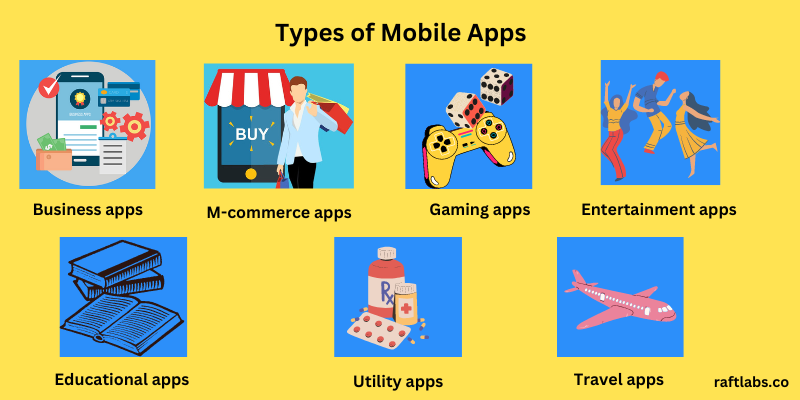
Types of mobile apps
1. Business apps
These apps help businesses improve their operations. Employers, clients, suppliers, delivery agents, etc., usually use such applications.
Examples of Business Apps:
1.1. Slack Mobile App
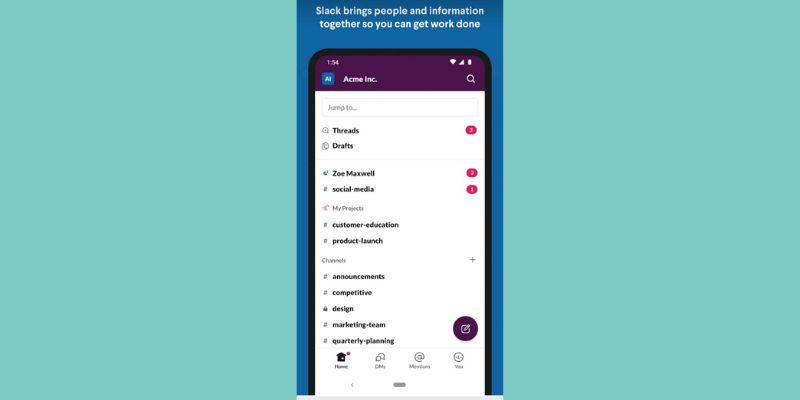
Use: The app helps to carry out team communication and collaboration more effectively.
Downloads: 1M+
1.2. Skype

Use: The app allows users to instant message, voice, or video call for free.
Downloads: 100M+
1.3. MailChimp
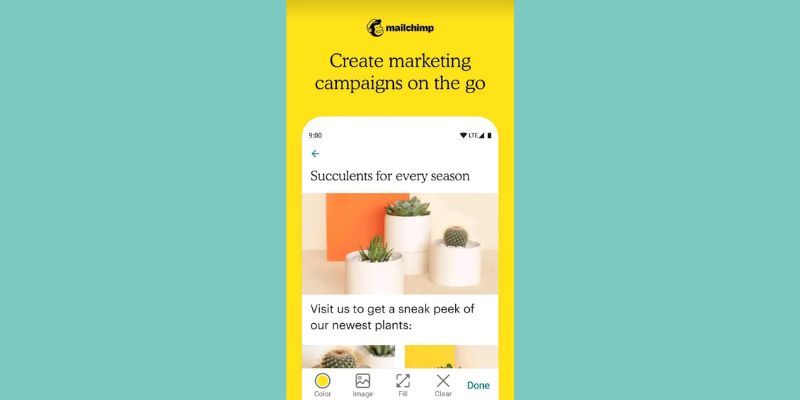
Use: Businesses use this app for marketing purposes.
Downloads: 10L+
2. M-Commerce apps
Mobile commerce apps provide merchants and buyers with a platform to sell and buy goods. They offer a smooth shopping experience to customers.
Examples of M-commerce apps:
2.1. Amazon Shopping
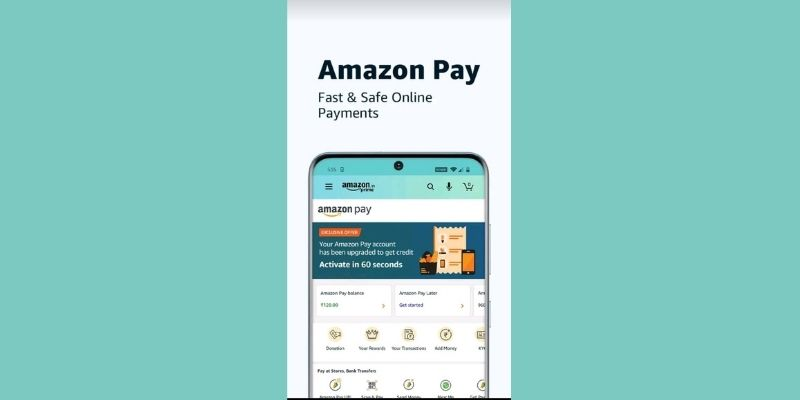
Use: People can shop for products online through this app.
Downloads: 50M+
2.2. Etsy: Buy & Sell Unique Items
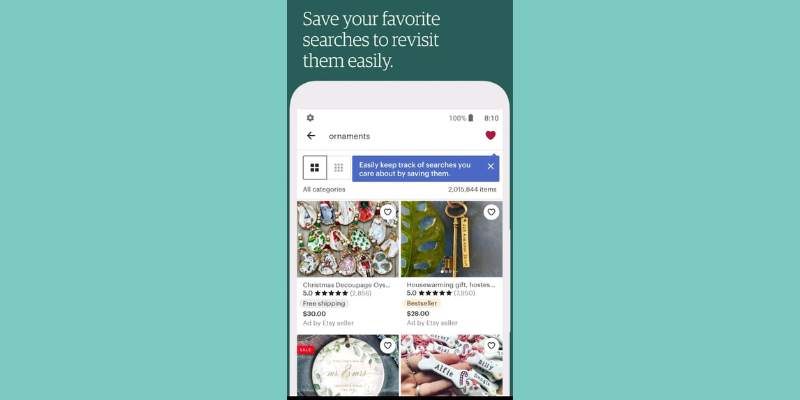
Use: The app allows people to shop for goods online.
Downloads: 1M+
3. Gaming apps
They are the most popular mobile app category that is highly profitable in the market.
Examples of gaming apps:
3.1 . Candy Crush Saga

Use: It is a puzzle game that allows gamers to proceed from one level to another after they win each level.
Downloads: 100M+
3.2 My Talking Tom

Use: The players adopt and care for their pets.
Downloads: 100M+
4. Educational apps
Users install such apps to gain new skills and knowledge.
Examples of gaming apps:
4.1. Sololearn: Learn to Code
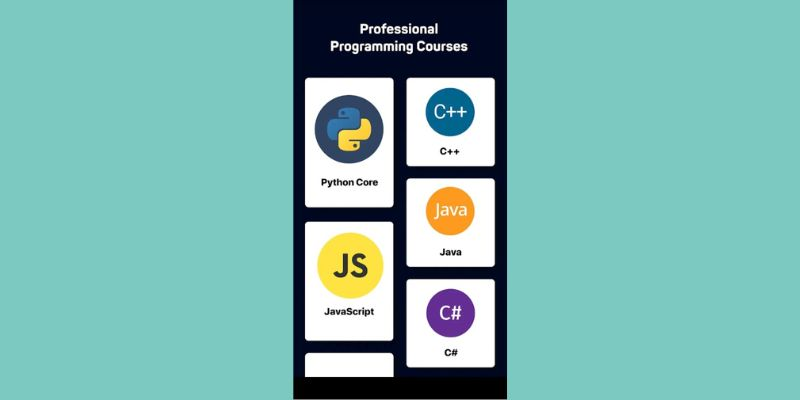
Use: People can learn programming languages that will help them to code.
Downloads: 10M+
4.2. Duolingo: Learn English
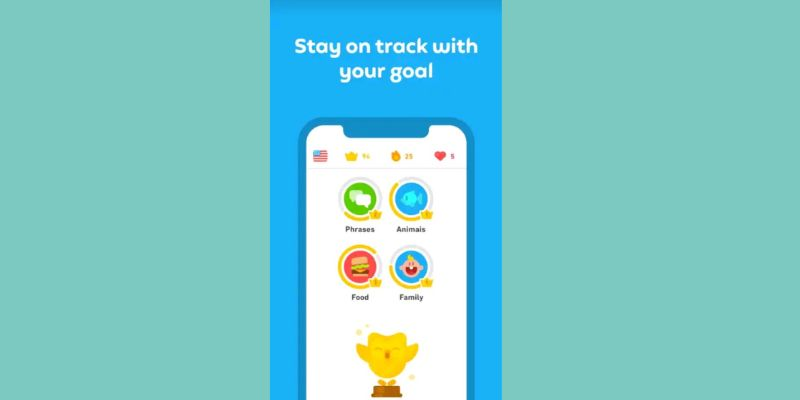
Use: The app improves language skills through fun activities.
Downloads: 10M+
5. Entertainment apps
These apps entertain people by providing an independent platform for movies, music, live streaming, sports, and much more.
Examples of entertainment apps:
5.1. Netflix
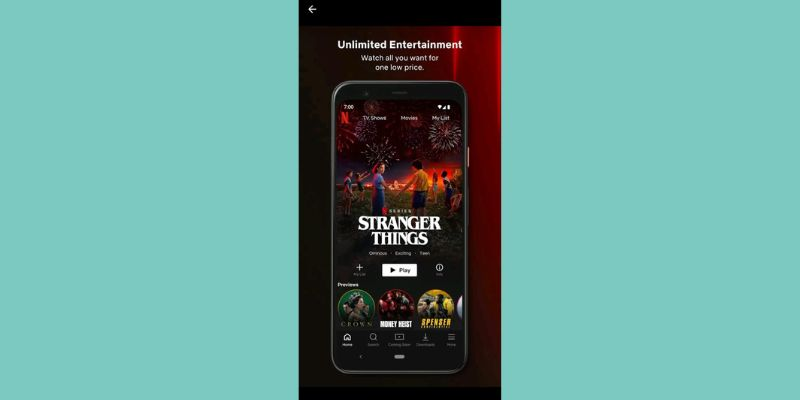
Use: It offers streaming services that allow members to watch TV shows and movies.
Downloads: 100M+
5.2. YouTube
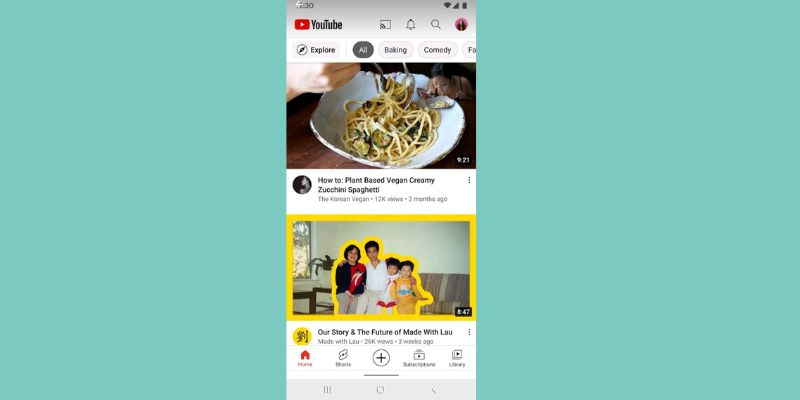
Use: The app offers a free video-sharing platform where content creators can share their videos, and the audience can watch them.
Downloads: 1Bn+
6. Utility apps
These apps help solve the issues people encounter daily.
Examples of utility apps:
6.1. PharmEasy - Healthcare App
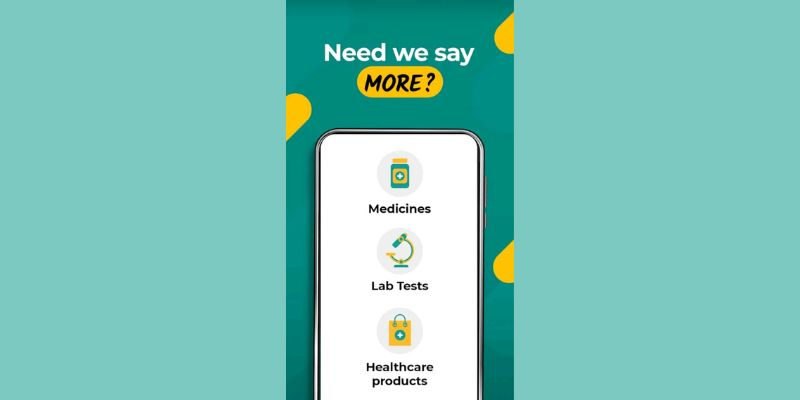
Use: People can purchase medicines online by downloading this app.
Downloads: 10M+
6.2. QR & Barcode Scanner
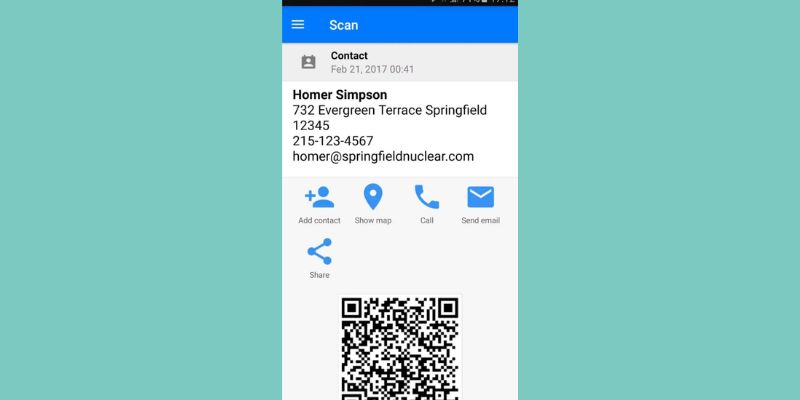
Use: The app scans the QR code/ Barcode.
Downloads: 100M+
7. Travel apps
Use: These apps act as a guide for people who wish to travel and explore new places.
Example of a travel app:
7.1. Booking.com: Hotels and more
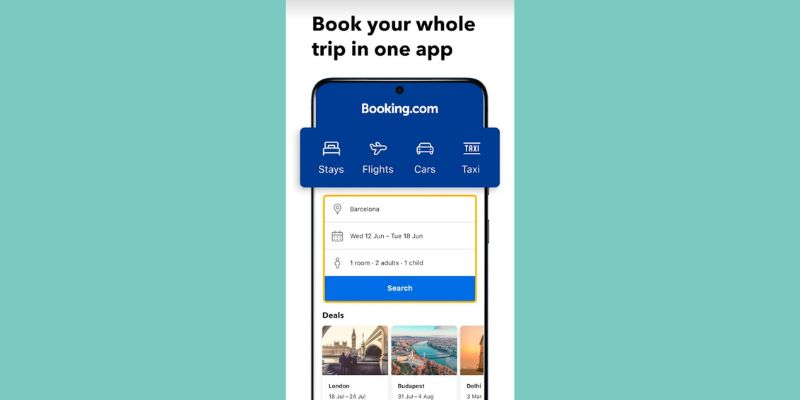
Use: Travelers can find a place to stay and plan their trip comfortably with this app.
Downloads: 500M+
Our Case Studies
1. Mobile App For Events, Membership Clubs, And Communities
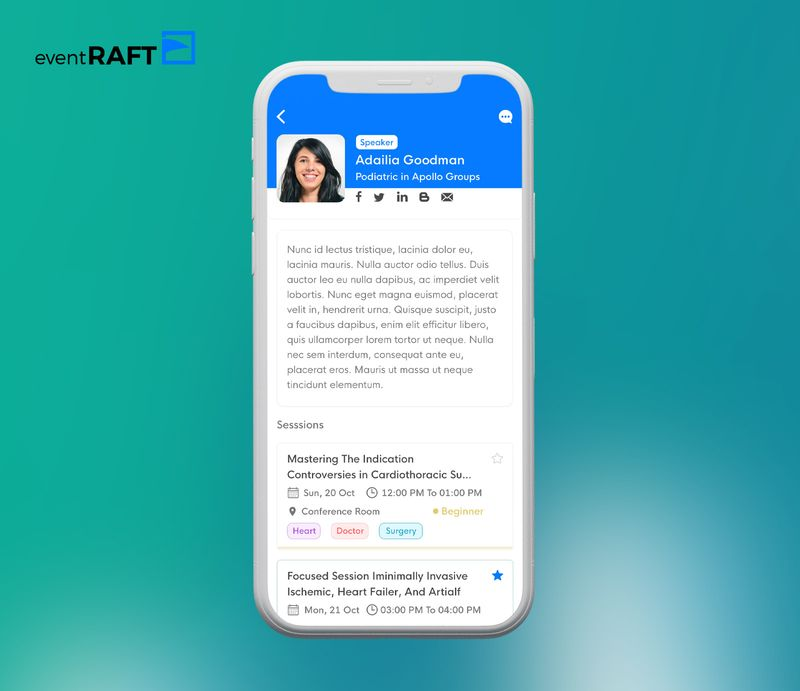
Mobile App For Events, Membership Clubs, And Communities
Objective: An app for managing events, membership clubs, and communities.
Industry: Entertainment and events
Target Audience: Event organizers
Check how we created an Android iPhone app within 20 weeks >> Click here.
2. Engagement & Training app for Employees
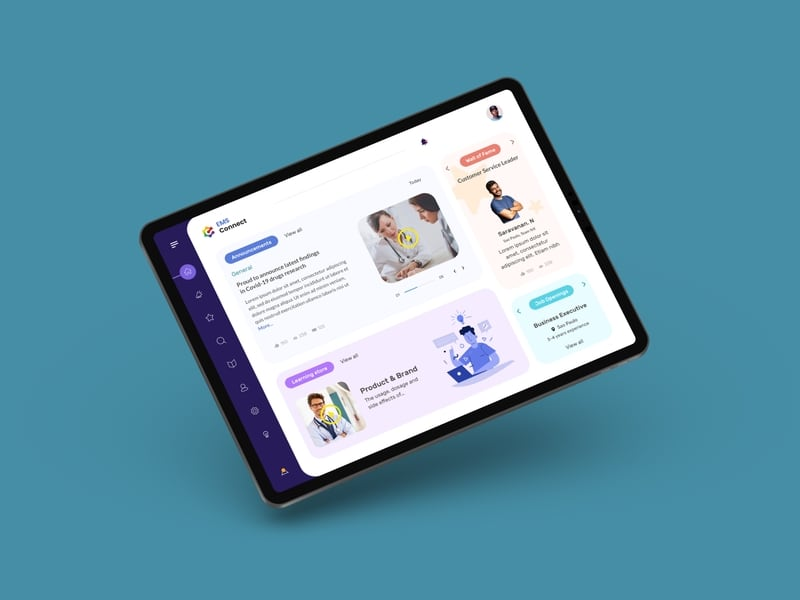
Engagement & Training App for Employees
Objective: A mobile app game for employees to learn more about the company while having fun
Industry: Healthcare
Target Audience: Employees
Check how we created an Android iPhone app within 18 weeks >> Click here.
3. Trivia Game App for Employees
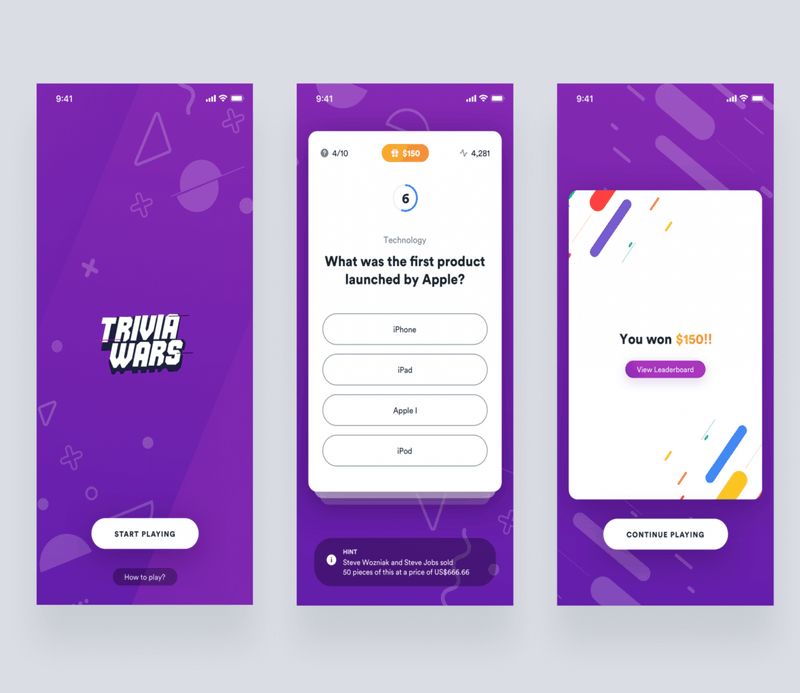
Objective: A mobile app game for employees to learn more about the company while having fun
Industry: Engagement and communication
Target Audience: Employees
Check how we created an Android iPhone app within 16 weeks >> Click here.
Conclusion
A mobile app development company can help you build lovable mobile applications in less time.
Before you sign the contract to create your mobile app, discuss the costs and time with the app development company. Approaching the right people can make a big difference.
Engineers at RaftLabs will help you develop an app at a minimum cost. Before starting the project, we will provide you with an estimated budget and time your mobile app development will require. Our team is always enthusiastic about sharing ideas that will help enhance your app's features.
Contact us for a free technical consultation if you wish to outsource your web app development project.


